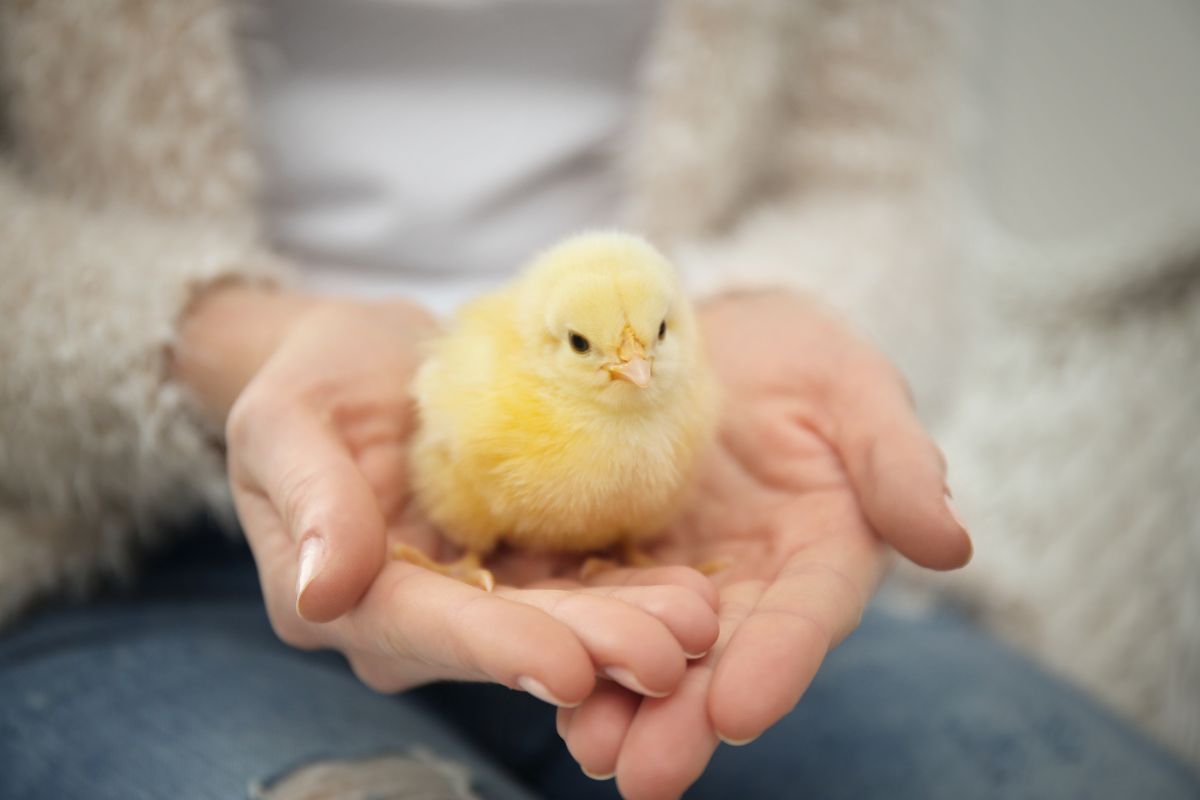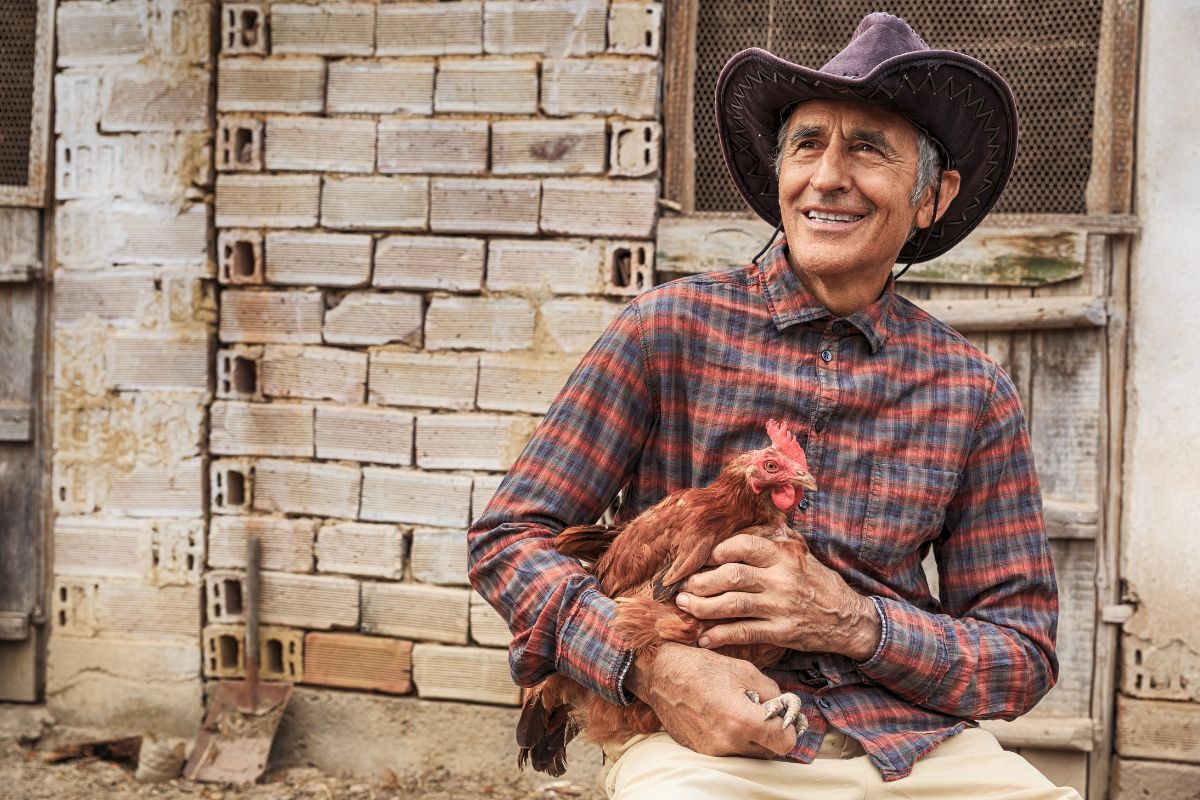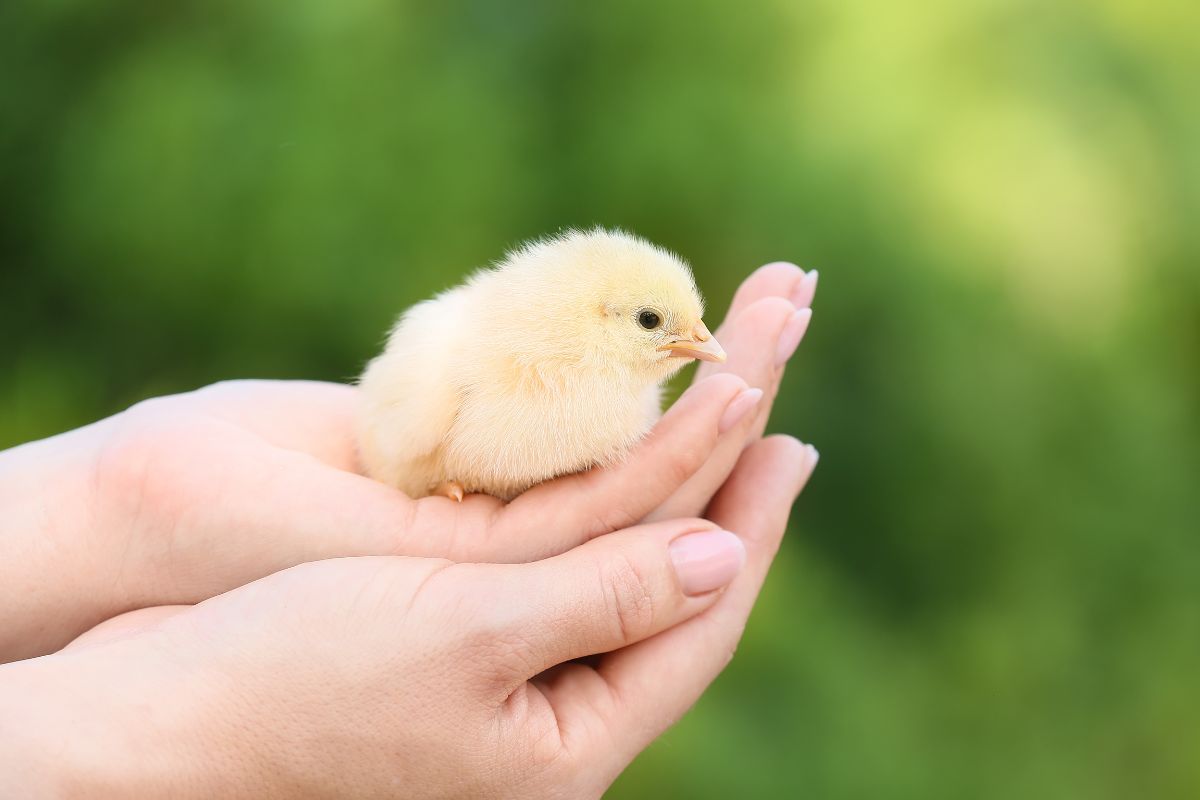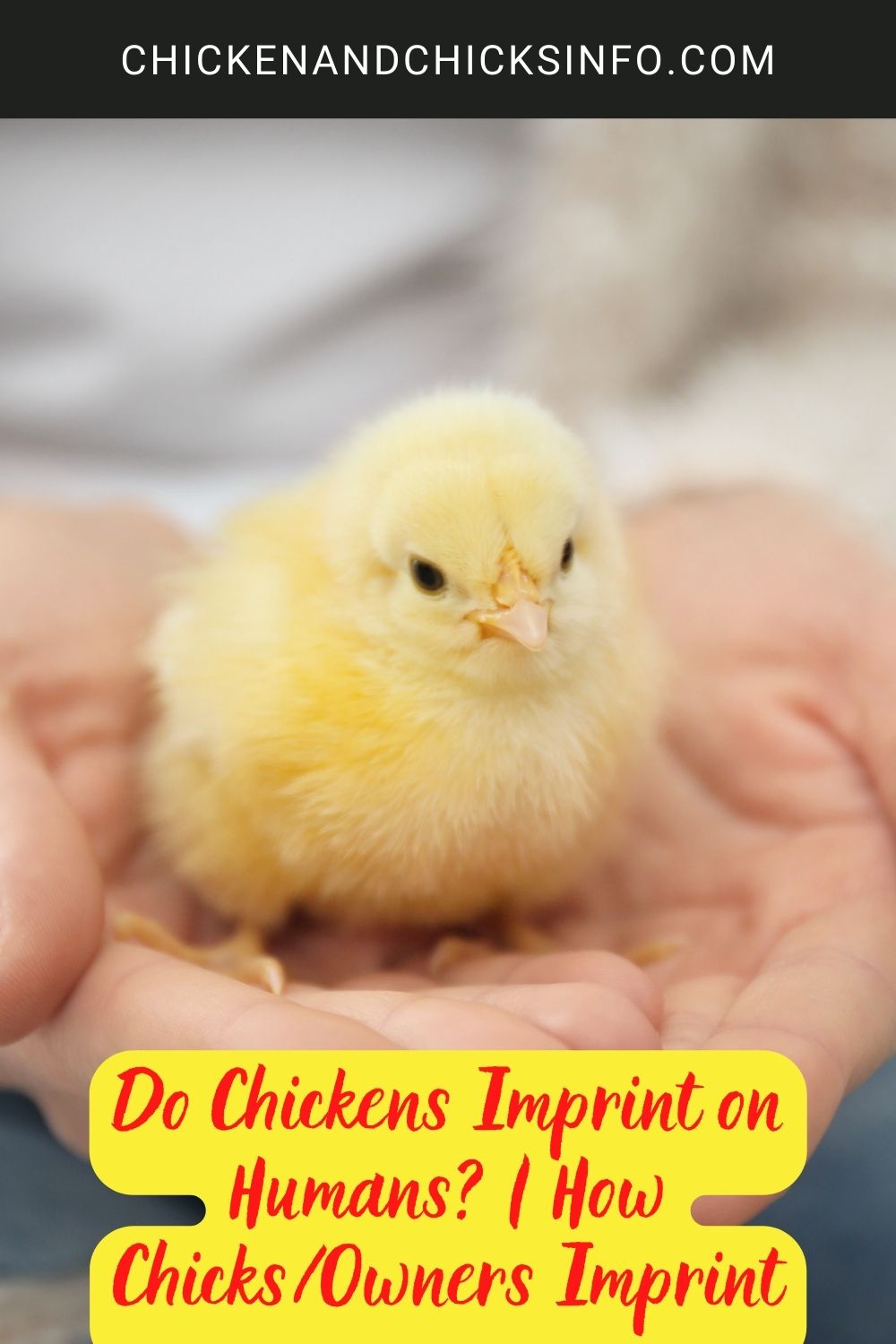Yes, chickens do imprint on humans - or other objects or animals. Baby chicks are pre-programmed to imprint on the first moving object after hatching, so that should either be their mother hen or you.

Jump to:
What It Means When an Animal "Imprints" on a Human
Imprinting refers to the critical period of time when an animal is young and is looking to learn who its parents and species are.
Many animals will “imprint” on the species “mothering” them at this crucial period. Meaning they will associate with that species, think they’re of the same species, and even find that species attractive when they reach adulthood.
Chickens, and ducks, in particular, are known to be especially prone to imprinting on other species, even humans when they are young.
Poultry breeders will often take advantage of this to domesticate chickens. With the added bonus of your chicks thinking you're their mom - just don’t let them down!
Do Chickens Imprint on Humans?

Birds in general - and this includes chickens - are especially prone to imprinting on the first object, animal, person, or just about any moving object they first see when they hatch.
It’s called “imprinting” because it’s believed that the object they first lay their eyes on becomes imprinted in their minds, and is irreversible.
It’s something that poultry farmers have known about for a long time. Back in ancient times in China, farmers would imprint their newly hatched ducklings to a stick.
Then, whoever carried that stick would be able to lead large flocks of ducks and direct them where to go with ease.
Most famously, a scientist named Konrad Lorenz won the Nobel Prize for his research into imprinting and the effects it has on poultry back in 1935.
Lorenz hatched two clutches of goose eggs, allowing one clutch to imprint on him, and the other to their mother goose.
He realized right away that the baby goslings imprinted on him followed him everywhere. While the other followed their mother.
He then mixed all the goslings together for a while. When he released them, the same goslings followed him and the mother.
We see exactly the same thing with chicks that are hatched in incubators when the first thing they see is you looking all excited over witnessing a chick hatch.
Without realizing it, most people are imprinting themselves on their chicks.
Related - How chickens show they love their owners.
The Pros and Cons of Imprinting Chickens

There are pros and cons to imprinting chicks on yourself. If you’re going to raise the chicks, it’s perfectly fine. In fact, it’s a good idea, as they’ll flock to you and will be more responsive to you.
If you’re going to give away the chicks you’re hatching, it’s also a good idea as it makes chickens more tame and sociable to humans.
You might want to consider imprinting their new owner if that’s at all possible though. When a chicken imprints on a human it doesn’t mean they treat all humans the same.
There can also be complications with roosters imprinted on humans. The pro is that the rooster is less likely to be aggressive to humans. But the con is that they can struggle to understand their natural order within a flock.
It’s said that it’s best to imprint roosters on birds. A rooster has an important role within a flock, fully understanding they are chickens helps them better perform their role as protector.
The obvious issue, however, is sexing a rooster and being able to bird-imprint them. It’s not always possible, but at least you have an idea why they’re behaving how they are.
Do Chickens Get Attached to Their Owners?
Chickens do get attached to their owners, it’s one of the many endearing qualities chickens have.
There are two “stages” to how and why chickens get attached to their owners.
The first is imprinting, as I’ve already explained in this article. The second is how much time you spend bonding with them and the feelings they attach to interacting with you.
Chickens do have very individual personalities. Some can be won over (mostly with food), and some can’t.
But generally speaking, if you spend time bonding with your chickens, they’ll become more “attached” to you.
This means petting them, encouraging them to come to you, then giving them a treat, spending time with them - all the usual pet and owner bonding activities.
In Summary
Imprinting essentially means a newborn animal becomes “attached” to the first thing or person they see on arrival into the world. They grow up believing they are of the same species.
Chickens are very susceptible to being imprinted on the first moving object they see. It’s an effective way to bond or attach yourself to your chicks, and explains why they follow their owners around as if they’re mother hen.





